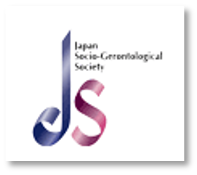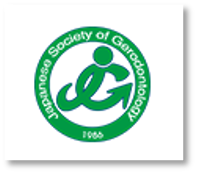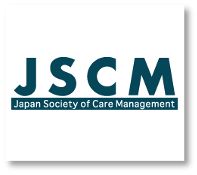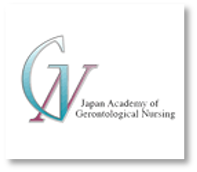
The Japan Gerontological Society [Founded / Established: November, 1959]
The Japan Gerontological Society (JGS) was established in 1959 as a national association in the field of gerontology in Japan. The JGS is an interdisciplinary scientific society, engaging in research focused on the problems of aging and the service and care of older people, not only in the economic and sociological realms but also in the areas of social welfare sciences, psychology, architecture, health sciences,
nursing, and psychiatry. The society has a wide range of members of various backgrounds, from social, behavioral, and health science researchers to doctors, nurses, and other welfare and nursing care professionals. In addition to a major academic meeting with its member societies every other year, the JGS has held additional annual workshops and symposiums since 2002.

We strive for the progression of geriatric medicine by collaborating with and coordinating academic conferences, held with the purpose of connecting members, encouraging domestic and international relations, spreading information and promoting research in the field of gerontological medicine. It is our goal to further contribute to society through the utilization of the academic culture developed by our country.

The Japan Socio-Gerontological Society was established as a denomination of the Japan Gerontological Society. It has developed as an interdisciplinary scientific society, engaging in research focused on the problems of aging and the service and care of older people, not only in the economic and sociological realms but also in the areas of social welfare sciences, psychology, architecture, health sciences, nursing, and psychiatry. The society has a wide range of members of various backgrounds, from social, behavioral, and health science researchers to doctors, nurses, and other welfare and nursing care professionals. It also plays a role in publishing the highly respected Japanese Journal of Gerontology quarterly, which consists mainly of submitted essays. In addition to a major academic meeting with its member societies every other year. they have held additional annual workshops and symposiums since 2002.

An extensive scientific society which conducts research on the elucidation of effects on older people and the development of aging prevention, focusing primarily on the study of Drosophila developed from cultured cells as well as other high-level animals.

Our purpose is to contribute to the medical care and treatment of older people through general research on oral aging problems, dental-related medicine and welfare in an aged society, and an understanding of results of collaborative research and publications with other scientific societies.

Today, the expectations of psychogeriatric medicine are rising rapidly, and thus it is imperative for those involved to take the necessary steps to prepare. There is a sense of urgency in psychogeriatric medicine, with the issue of dementia as the greatest challenge. In addition, afflictions such as delusion, neurosis, and depression which can easily be seen in old age, as well other psychological obstacles that go hand in hand with physical ailments, must also be targeted. There are many reasons for the increase of physical and socio-psychological factors involved in the expression of psychological obstacles of old age. The understanding of their specific symptoms and aspects of treatment, not merely as an extension of general psychiatry, is necessary from the point of view of psychogeriatric medicine. Based on these circumstances, The Japanese Psychogeriatric Research Society was founded in 1986 as a gathering of those with profound interest in this field, with the purpose of presenting results of habitual research and exchanging information. In 1988, it was reorganized as The Japanese Psychogeriatric Society and continues as such to this day.

In the nursing care insurance system, the introduction of care management is still in its infancy. It is our hope that care management of the highest quality can be realized through the progression of interdisciplinary research, promotion of relationships and mutual cooperation among researchers, coordination of domestic and international scientific associations, proper instruction in care management technology, and societal development efforts. By improving the quality of life for those people who need assistance, we hope to contribute to the creation of a rich global society.

In 1990, gerontological nursing education was first promoted separately from adult nursing education because of the increase in the Japanese aging population. Following its introduction, the Japan Academy of Gerontological Nursing was established in 1995. Since the 1970s the population in Japan has been rapidly aging. In response, a wide variety of activities and research have been conducted in nursing care settings. However, the gerontological nursing curriculum was not introduced until about 20 years later. Our organization was formed 5 years after that. From 1970 to 1995, researchers were obligated to present or publish in their related fields. Once the Japan Academy of Gerontological Nursing began, researchers responded with publications and presentations on "the provision of high-quality care for older people."
Tokyo Metropolitan Institute for Geriatrics and Gerontology
National Center for Geriatrics and Gerontology
Chiba University Graduate School of Nursing
Osaka University Graduate School of Medicine
Tokyo Metropolitan Institute for Geriatrics and Gerontology
Tohoku Fukushi University
Tokyo Medical and Dental University
International University of Health and Welfare
University of Tokyo
Kobe University
Osaka Dental University Faculty of Dentistry
University of Tokyo
University of Tsukuba
Shibaura Institute of technology
University of Tsukuba
Tokyo Metropolitan Institute for Geriatrics and Gerontology
University of Osaka
Osaka City University
Osaka University Graduate School of Medicine
Osaka University Graduate School of Dentistry
Tokyo Metropolitan Institute for Geriatrics and Gerontology
Kobe University